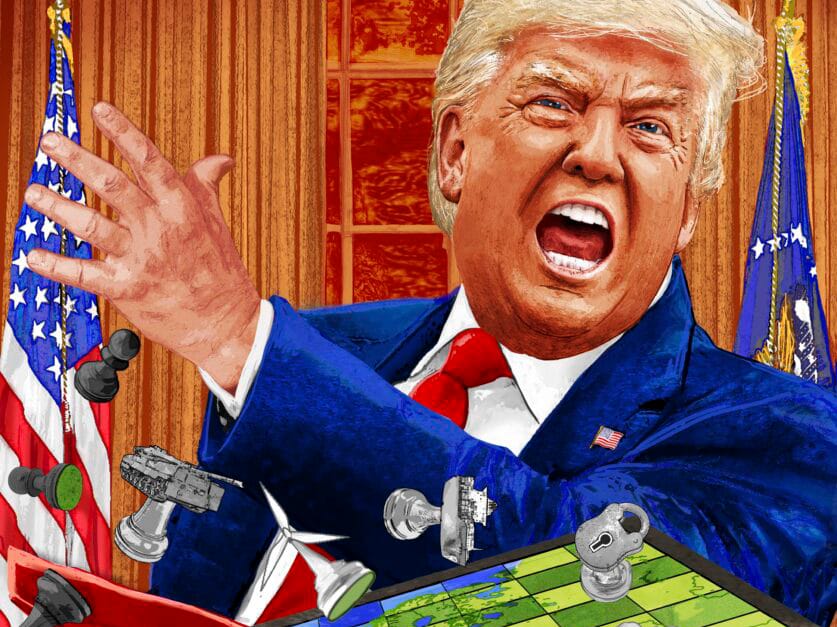The former president’s return would cement a shift in the U.S. as a fact that can no longer be ignored.
This is the moment most of Europe’s leaders hoped they would never see. The date is November 7, 2024, two days after Donald Trump edged out Joe Biden in the U.S. presidential election, and already the once-and-future president has announced he will force Ukraine to strike a peace deal with Russia and cede territories the Kremlin has claimed as its own.
Gathered in Budapest for a meeting of the European Political Community, the continent’s leaders stare out over the majestic Danube River with just one thing on their mind: How should they react?
Can they double down in the face of Trump’s opposition and finally give Kyiv whatever it takes, as a group of leaders clustered around Ukrainian President Volodymyr Zelenskyy and French President Emmanuel Macron are arguing? Should they follow Hungarian Prime Minister Viktor Orbán’s lead and welcome Trump’s initiative to bring the conflict to an end? Wouldn’t it be better to work with Washington and help shape the deal, as the German and Italian delegations keep saying? And most importantly, how can the continent’s leaders keep the sharp turn in U.S. foreign policy from driving their countries apart?
Trump’s return to the White House is no sure thing, but the possibility is forcing Europe’s leaders to ponder scenarios like this, and grapple with the questions they entail. And as the U.S. election cycle cranks into a higher gear, officials across the continent are becoming increasingly candid about the implications of a second Trump presidency.



This is the best summary I could come up with:
The date is November 7, 2024, two days after Donald Trump edged out Joe Biden in the U.S. presidential election, and already the once-and-future president has announced he will force Ukraine to strike a peace deal with Russia and cede territories the Kremlin has claimed as its own.
Crucially, while it was possible to dismiss Trump’s first term as an aberration — a geopolitical squall that could be weathered — his return would cement the shift in American foreign policy as a fact that can no longer be ignored.
He would push Zelenskyy to cede Crimea and parts of the Donbas to convince Russian President Vladimir Putin to end the war, a plan first reported by the Washington Post.
“The fact that Congress felt the need to do that and President Biden was willing to sign it tells you that there are real concerns in Washington,” said Brad Bowman of the Foundation for Defense of Democracies, a Washington-based think tank.
While the bloc has made some progress, agreeing to pool cash to buy weapons for Ukraine and ramp up arms manufacturing, actually delivering on these polices has been slow because of failures to pay up, disputes over how to raise the money and squabbles about where to spend it.
To make matters worse, even as they struggle to present a common front, Europe’s leaders would likely be coming under pressure from a host of Trump-led policies that might as well be designed to pull them apart.
The original article contains 2,357 words, the summary contains 246 words. Saved 90%. I’m a bot and I’m open source!